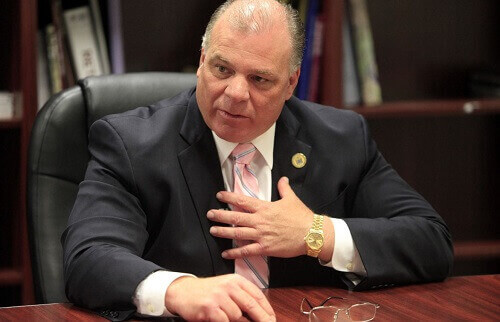With the Supreme Court repealing the federal ban on sports betting in the United States, the next big talking point has been the integrity fee. Many of the major sports leagues in America are requesting that an integrity fee be placed on all bets. They say this will be used to monitor for match-fixing and unusual bets. However, most states agree that even a small 1% integrity fee will hurt the industry before it even gets started. The New Jersey Senate President, Steve Sweeney, went as far as to say the fee is nothing more than extortion.

The New Jersey Senate President has said that the sports betting integrity fee, requested by major sports leagues, is nothing but extortion.
No Integrity Fee Until Now
Sweeney pointed out that New Jersey has had to spend large sums of money in its fight to get the ban overturned, with the major sports leagues opposing New Jersey every step of the way. Now that the Supreme Court has overturned the ban, the sports leagues want this fee as a way to get something for nothing.
In addition to this, sports betting has been completely legal in Nevada for a long time, with three other states having some sports betting allowed. None of those states were ever asked to pay an integrity fee, and many US citizens have been placing wagers on overseas sportsbooks. Sweeney is also questioning what this integrity fee will be used for; what would the leagues start doing now that they haven’t been doing?
States Reject Integrity Fee & Federal Regulation
Most states that are planning on legalizing sports betting have all shared a similar view and rejected the fee. This has now led to the major sports leagues approaching Congress to regulate the industry on a federal level instead of states regulating it themselves. However, this has not gone down well with state gambling regulators either, who are fighting back against the proposal.
Several states have agreed that coordinated regulation between states would be far better than federal regulation. The major sports leagues are concerned with the speed at which many states are trying to legalize sports.
Related Topics




